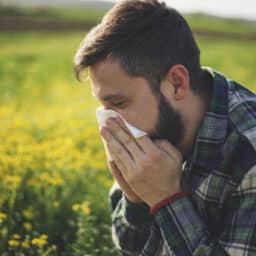What to Know About Sound Machines and Noise-Induced Hearing Loss

Noise-induced hearing loss (NIHL) is a form of permanent hearing loss that occurs from prolonged exposure to loud sounds. This damage happens when high-decibel sounds harm the delicate hair cells in the inner ear, which are responsible for sending sound signals to the brain. Recently, studies have shown that certain sound machines, often used to…
Vocal Nodules and Vocal Polyps: What’s the difference?

Vocal nodules and vocal polyps are noncancerous growths on the vocal cords that can lead to a hoarse, breathy voice. Though they share some similarities, these conditions have distinct characteristics. Let’s take a closer look at each. Understanding Vocal Nodules Vocal nodules are small, callus-like formations that develop on the vocal cords due to prolonged…
The Connection Between Loud Noise Exposure and Hypertension

While many people are aware that loud noise can damage their hearing, fewer realize that it can also significantly impact overall health, including blood pressure. A study from 2023 highlighted a strong connection between prolonged exposure to loud noise and the development of hypertension, a condition that can lead to health complications if not managed…
How to Celebrate Audiology Awareness Month

Each October, Audiology Awareness Month occurs to promote awareness about hearing health and the importance of hearing protection. Audiology Awareness Month was established in March 2008 and prioritizes sharing resources and educating the community. According to the World Health Organization, more than 1.5 billion people, or 20% of the world’s population live with hearing loss…
Tips To Address the “Plugged Up” Sensation in Hearing Aids

In 2019, approximately 7.1% of adults aged 45 and older used a hearing aid. Hearing aids are tiny devices that amplify external sounds to improve communication understanding. If you’ve been wearing hearing aids for a while or recently started using them, you may have experienced a “plugged up” feeling similar to how your ears feel…
What to Know About Tinnitus and Brain Fog
Tinnitus, the presence of ringing, buzzing or other sounds in the ears without any external noise, is a condition that affects more than 50 million people in the United States each year. If you are among those who also experience brain fog, which is marked by cognitive issues such as mental haze and memory lapses,…
Why Should You Stick With Long-term Allergy Treatment?

With summer in full swing, weed, grass and tree pollen are swirling around us. For those with hay fever, this pollen storm can create unpleasant symptoms. What is Hay Fever? Hay fever, or allergic rhinitis, is an allergic reaction to pollen, pet dander, mold and insects. While hay fever can happen at any time of…
What is Allergy Avoidance, and How Can It Help Manage Your Symptoms

Allergy avoidance is an allergy management approach that minimizes contact with allergens, which can significantly reduce the severity of allergic reactions. This strategy is particularly beneficial for individuals with environmental allergies, such as pollen allergies. By understanding allergy triggers and avoiding them, symptoms can be managed more effectively. Identifying Allergens in Your Area The initial…
How Can I Prepare My Child for Allergy Testing

As a parent, understanding whether your child has allergies and helping relieve their symptoms can be confusing, as they often may appear as symptoms of other illnesses. Allergies are common among children, with 18.9% of children experiencing seasonal allergies. Allergy tests are essential tools for identifying potential allergens and developing a management plan. To ensure…
How Do Allergies Impact Mental Health?
The impact of allergy symptoms on mental health often remains a less-explored topic despite allergies affecting an estimated 100 million people annually. In fact, in the U.S., allergies rank as the sixth most common chronic condition. Studies have begun unraveling a significant correlation between chronic allergic rhinitis and an increased risk of depression and anxiety….
